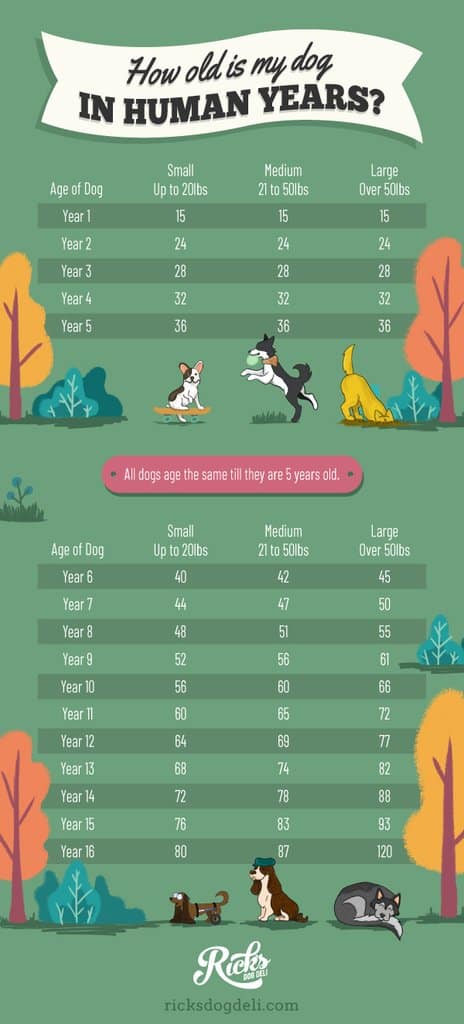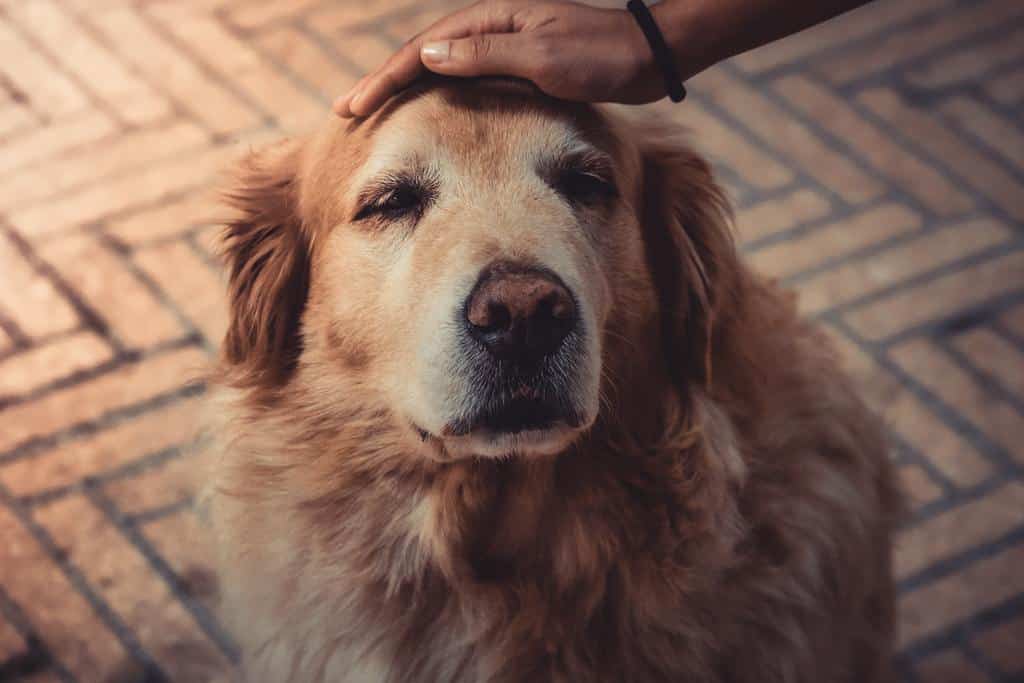November is National Senior Pet Month and those of us with a longtime furry friend know just how rewarding it is to care for a dog for its entire lifetime.
But just because your dog is your baby doesn’t mean that her nutritional needs are the same as when she was a puppy. When you’re considering making the switch to a senior dog food formulation, there are a few things to keep in mind.
Is My Dog A Senior?
Of course, the first thing you want to ask yourself is whether your dog really is a senior.
While you may have heard that one human year is equal to seven dog years, the truth is a little more complex than that. Different sized dogs age at different rates and overweight dogs age faster than lean dogs.
Take a look at our easy-to-read chart to find out how old your dog is in human years. For most breeds, seven years of age is considered to be “senior status” in dogs, but some breeds might be “elderly” by age five or six.
A good rule of thumb is that once a dog has reached “middle age” (i.e. half of their expected lifespan), they are a senior.
Senior Dog Food Needs
When your dog was a puppy, his body and brain were growing at an incredible rate and he needed plenty of protein, minerals, and fat as a result. You likely switched to an adult dog food once your pup reached their first or second birthday, so now it’s time for a senior dog food, right?
Maybe and maybe not.
A healthy diet is important for dogs of all ages, weights, and breeds. Instead of switching to a “senior dog food,” your dog might simply need a healthier, more nutritious dog food.
A natural, wholesome diet of lean proteins and fresh produce (unlike cats, your dog is not a carnivore!) should provide most dogs with the nutrition they need in their old age.
Of course, your dog might require certain accommodations as s/he ages. The best senior dog food consists of readily digestible ingredients (soft foods are better for this), free of fillers and toxins that can contribute to failing health. Also, consider switching to an easier-to-reach bowl so he doesn’t have to bend down as far to eat and drink.
Dental Health
Just like humans, your dog may start to experience dental problems as he or she ages. All those chew toys—plus not brushing twice a day—tends to catch up to them after a while.
And if you’ve been feeding your dog kibble in the belief that it will help “clean their teeth?” Sorry, it’s a myth.
Soft foods keep your dog’s teeth healthier, since it’s less likely to get stuck in the crevices in their mouth and lead to tartar buildup. And if your dog has already lost multiple teeth due to bad dental hygiene, a soft dog food will be easier for them to chew.
Another benefit to wet dog food? It’s higher in moisture, which can combat dehydration.
How Much To Feed Your Senior Dog
Dogs’ caloric needs vary according to their breed, activity level, and size, and every dog will have a different need.
Most senior dogs tend to have lower caloric needs, because their metabolism slows down and they may not be as active, due to arthritis and other health issues. Because of this, we usually recommend feeding your dog 2% of their body weight as a general guideline.
However, other dogs lose weight as they get older. Health issues and failing sight/smell can cause your dog to eat less calories than she needs to to stay healthy. If your dog appears underweight, you may need to increase their calorie intake or switch to a more palatable food. (Wet foods are easier for dogs to smell, and thus appear more appetizing.)
For any dog, a wholesome, unprocessed diet is better than one with empty calories. If you feel like your dog needs a little extra treat between meals, a healthy snack can fit the bill.
Senior Dog Health Issues
As they age, dogs are at risk of the same age-related health issues as humans are:
- Arthritis
- Cancer
- Kidney Disease
- Heart Disease
- Senility
- Liver Disease
- Diabetes
Watch for any prolonged, significant changes in your dog’s behavior, such as incontinence, changes in appetite, vomiting, excessive hair loss, confusion, or weakness.
If your vet has diagnosed your dog with a serious health condition (including one not listed here), changing their diet could be the key to reducing or alleviating their symptoms.
At Rick’s Dog Deli, we have a variety of therapeutic meal formulations for various health conditions and can even work with you and your vet to create a custom recipe to keep your dog at the pinnacle of health.
Different Stages, Not Species
At the end of the day, your senior dog is still your baby, filled with love for your family. And with Rick’s Dog Deli, you can extend their life to get plenty of happy years with them.
Giving your dog a lifelong diet of healthy, wholesome, nutritious food free of toxins and empty calories is more important than finding “the best senior dog food.” In fact, if your aging dog is starting to snub his meals, finding a healthy diet that he will actually eat will do more than any prescription dog food ever could.
At Rick’s Dog Deli, our meals are made of 100% USDA-inspected ingredients, gently cooked and flash-frozen to preserve the freshness and nutrients that will keep your pet whole and healthy. Because it’s real food, it smells and tastes just like the “people food” your dog is always begging you for!



